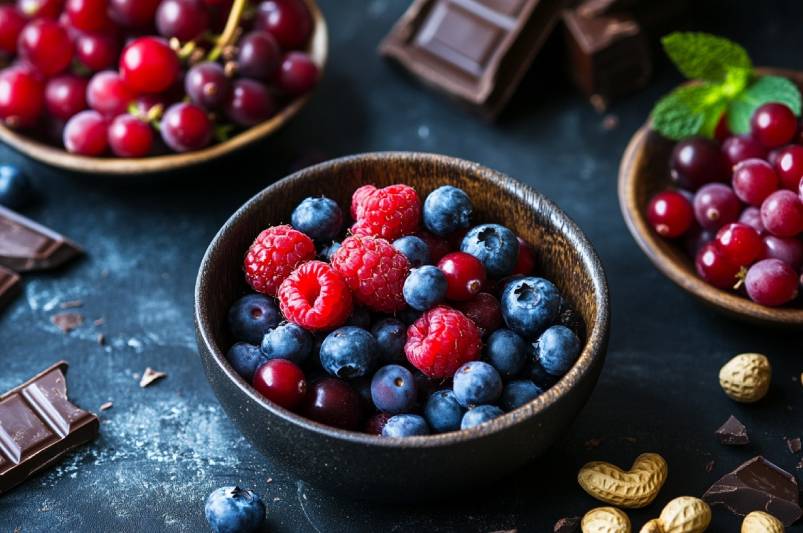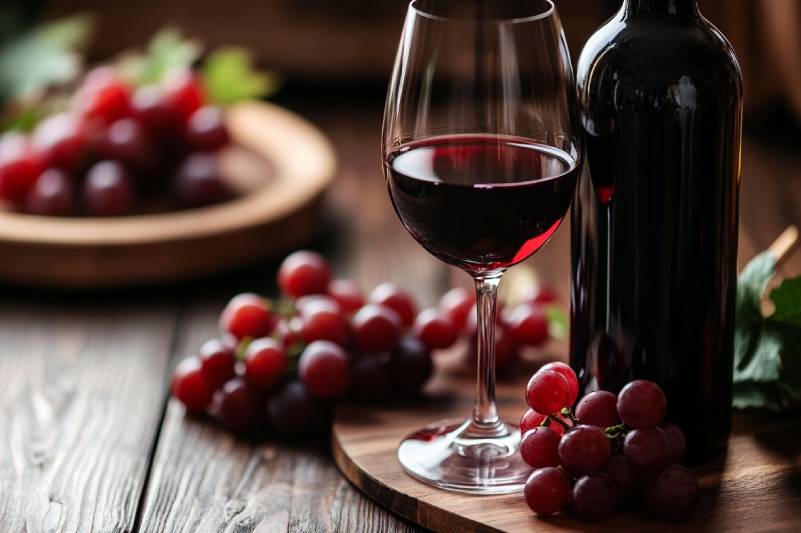Resveratrol, a powerful compound found in grapes, has gained buzz as a miracle nutrient for its potential to promote longevity and overall health. But what exactly is resveratrol, and how does it work its magic? Let’s delve into the science behind this fascinating compound, tracing its journey from humble grapes to its potential impact on longevity.
What is Resveratrol?
Resveratrol, found in high concentrations in the skin of red grapes, is a type of polyphenol (a natural antioxidant). Plants produce resveratrol in response to stress, injury, fungal infections, or harsh weather conditions. Consuming resveratrol-rich foods such as grapes and red wine allows you to benefit from its powerful antioxidant and anti-inflammatory properties.
So how did resveratrol become associated with longevity? The connection was first made through epidemiological studies, which observed that populations with diets rich in fruits and vegetables, including grapes and red wine, tended to have lower rates of certain age-related diseases. This sparked interest in resveratrol and its potential health benefits.
The Longevity Connection
How does resveratrol promote longevity? Research has shown that resveratrol activates certain genes that help protect against age-related diseases, including:
- Heart Disease: By reducing inflammation and improving blood flow.
- Cancer: By inhibiting the growth of cancer cells and inducing apoptosis (cell death).
- Cognitive Decline: By reducing inflammation and oxidative stress in the brain.
One of the key ways resveratrol works is by activating a protein called SIRT1, which is involved in cellular metabolism and stress resistance. By activating SIRT1, resveratrol helps to:
- Improve insulin sensitivity: Reducing the risk of developing type 2 diabetes.
- Protect against oxidative stress: Reducing inflammation and cellular damage.
- Promote cellular longevity: Helping cells live longer and function more efficiently.
How to Get More Resveratrol in Your Diet

Incorporating these foods into your diet can help you tap into the potential anti-aging benefits of resveratrol:
- Red Wine: A rich source of resveratrol (enjoy in moderation).
- Grapes: Especially red and purple varieties.
- Berries: Blueberries, raspberries, and cranberries.
- Peanuts: Including peanut butter.
- Dark Chocolate: In moderation for an antioxidant boost.
- Resveratrol Supplements: If you’re not getting enough resveratrol through your diet, consider talking to a healthcare professional about supplements. They can advise you on the appropriate dosage and potential interactions.
Resveratrol is a powerful compound with a range of potential health benefits, from promoting longevity to protecting against age-related diseases. While more research is needed to fully understand its long-term effects and optimal dosage, incorporating resveratrol-rich foods into your diet or considering supplements may be a valuable addition to your overall health and wellness plan.

